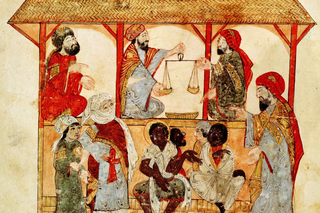Dr. Janie Cole (PhD University of London) is a Research Scholar at Yale University’s Institute of Sacred Music and Visiting Professor in Yale’s Department of Music, an affiliate of the Yale Council on African Studies, Research Officer for East Africa on the University of the Witwatersrand and University of Cape Town’s interdisciplinary project Re-Centring AfroAsia (2018-), and a Research Associate at Stanford University’s Center for Computer Research in Music and Acoustics (2022-). In 2024, she will join the University of Connecticut’s Department of Music as an assistant professor of musicology. Prior to this, she was a Senior Lecturer (adjunct) at the University of Cape Town’s South African College of Music for nine years (2015- 23).
Janie’s specialty research areas are three-fold, focusing on musical practices, instruments and thought in early modern African kingdoms and Afro-Eurasian encounters, transcultural circulation and entanglements in the age of exploration; the intersection of music, consumption and production, politics, patronage and gender in late Renaissance and early Baroque Italy and France; and music and the anti-apartheid struggle in 20th-century South Africa and musical constructions of Blackness, apartheid struggle movement politics, violence, resistance, trauma, and social change. Her current work centers on early modern musical culture at the royal court in the Christian kingdom of Ethiopia and intertwined sonic histories of entanglement with the Latin Mediterranean and the Indian Ocean world.
She is the author of two books, A Muse of Music in Early Baroque Florence: the Poetry of Michelangelo Buonarroti il Giovane (Olschki, 2007) and Music, Spectacle and Cultural Brokerage in Early Modern Italy: Michelangelo Buonarroti il Giovane, 2 vols. (Olschki, 2011), as well as numerous articles in peer-reviewed journals and book chapters.
She has been granted fellowships from The Harvard University Center for Italian Renaissance Studies at Villa I Tatti (2005-6), the Newberry Library (2008), the Medici Archive Project (2002-5), won research grants from The Getty Foundation (2007-9), The Leverhulme Trust (1996-98), and The Italian Cultural Institute (1995-96), and been awarded the Stephen Arlen Award from English National Opera (1995), the Janet Levy Prize from the American Musicological Society (2010), the Author Grant Award from the Academic and Non-Fiction Authors Association of South Africa (2015), and the Claude V. Palisca Fellowship Award in Musicology from the Renaissance Society of America (2020). She served as Council Member of the Renaissance Society of America as Discipline Representative in Music (2015-17) and is currently the founding Discipline Representative in Africana Studies (2018-) at RSA and on the Editorial Advisory Board of Renaissance Quarterly. She is the co-founder of the International Musicological Society Study Group Early African Sound Worlds, founder of the Afro-Asian 5 Kukutana Ensemble, and co-organized the landmark international conference on Music in Africa and its diffusion in the early modern world (1300-1650) at Tours University’s Centre d’études supérieures de la Renaissance (2022). She is building the Malibongwe Women’s Archive of women’s struggle testimonies and music from apartheid prisons in collaboration with University of Cape Town Libraries Special Collections funded by the Schlettwein Foundation, and co-directing the film We Are Not Afraid: Music and Resistance in Apartheid Prisons (to be released 2024). She is the founder/executive director of Music Beyond Borders, a platform for public musicology and engaged scholarship.
